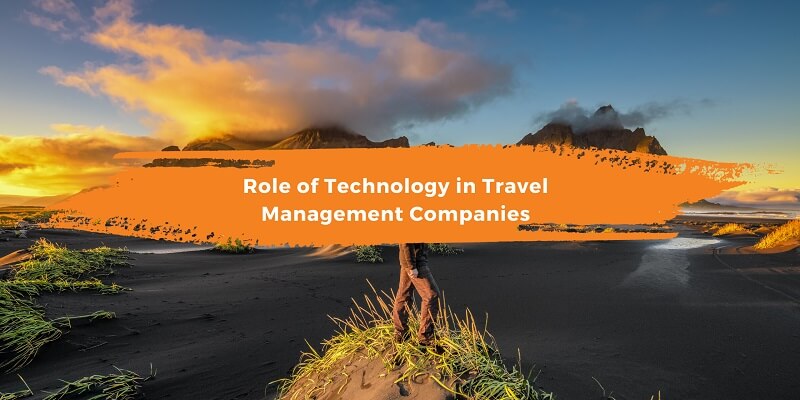Hello guys, today in this article, we will explore the role of technology in travel management companies with this informative guide. So keep reading.
Travel is the same as any other industry when it comes to technology. How customers buy things has transformed with digitization. From cashless transactions to contactless check-ins, technology is everywhere.
In the modern world, if a travel management company wants to sustain growth in the travel industry, it needs to remain updated with emerging digital developments. In this guide, we look at the role of technology in business travel management.
First, let’s explore the definition of travel technology.
What is the purpose of travel technology?
Travel technology is the application of technology for business travel management and planning. It helps travel companies plan trips for their customers, including booking accommodation, airline tickets, rental vehicles, and a wide range of other travel-related services.
Due to automated booking systems, travel management companies can perform all tasks quickly. These booking tools can save or retrieve the most recent data. Travel technology allows customers to secure online bookings. Additionally, it automates back-end operations and payments.
The Role of Technology in Travel Management Companies
Research and book
Before the 1980s, few firms could afford to install computers in the workplace. The same applies to travel management companies. To give customers the right advice, travel agents depended on their own experiences, participation in industry events, analysis of flyers, and personal ties with suppliers. Travel arrangements were also frequently made over the phone or by fax.
Travel management companies can now do online research, make bookings, and get confirmations. They do not need to keep physical copies of customer data, nor do they need to spend time on time recovering payments from customers and paying their suppliers. Reservations, payments, and confirmations are easily managed online, and email updates are available to customers.
Device communication
A Condor Ferries survey found that 70% of travelers preferred to research their travel bookings on their smartphone devices. These days, big cumbersome laptops have been replaced by tablets and smartphones.
The best travel management companies offer a SaaS-based travel management platform that can easily be accessed through a browser. Hence, all the employees have to do is log in to the platform with the right credentials and access their itinerary, book travel, or send travel requests to their travel managers.
The approvers, on the other hand, get notifications and updates for approvals, which they can approve from the mobile phones themselves.
Customers have expectations
Modern-day customers have more expectations and demands. So companies have decided to meet these high standards. Travel management companies who refuse to implement the right technological tools may lose customers.
At the same time, a TMC that does not invest in updating its technologies may find it hard to promote its business in the future.
The travel industry is online.
The best online travel management companies are transforming the travel industry by increasing their income and clientele. Such companies have shifted their focus from company-based flight and hotel bookings to personalized employee-based bookings.
The power of AI and chatbots
As technology develops, many travel companies are using AI solutions to automate bookings and provide customer care. One such instance is the use of chatbots.
Chatbots are user-friendly technology helpers that can make bookings, answer queries, manage payments, and more. They provide information to employees and can offer services round-the-clock. Chatbots are the perfect travel companions in times of need.
If your AI has machine learning abilities, it can offer expert opinions on customer behavior, likes, and preferred services. Further, their abilities cover all travel services, including travel locations, accommodations, airlines, car rental agencies, costs, and other factors.
With these details, online travel companies and hotels can send suitable offers.
Virtual reality and augmented reality
Virtual reality travel allows users to experience a location virtually with a headset. For example, if you plan to go out for a meal or go on a vacation, you can take a virtual tour of the hotel or restaurant you plan to visit.
Like teleporting, virtual reality gives you a kind of superpower for a few minutes. So you can grab a sneak peek of Everest, the Eiffel Tower, or a sunny day by the river Thames. Unlike researching the locations on YouTube, virtual reality makes you feel like you visited the place.
Augmented reality lets you take room tours and understand the amenities on offer.
It allows you to tour the interior of a flight, access schedules, get help with language difficulties, and even more.
Also, you can check the interior of an airline, determine the amount of your carry-on luggage, access schedules for public transportation, get over language difficulties, and much more.
Cybersecurity efforts
One of the main areas of focus for professionals in travel management is cybersecurity. Cyberattacks can harm the credibility of a good travel management company. Travel agents should ensure their itineraries and customer data are safe and stay prepared for any cyberattacks.
The best travel management companies offer travel management software with advanced security features, such as data encryption, access controls, etc. This ensures that all confidential employee information is safe from cyber threats.
Wrapping up
The convenience of technology is here to stay. Neither your company nor the customer wants the hassle of expensive inefficient services, booking glitches, and miscommunication. Besides this, the use of smartphones and the web has made it easy for the customer and has had a positive impact on the travel industry.
Even though travel management companies have had to adapt their operations, many have found even more success than before. These are the travel management companies that provide their clients with the best services, knowledge, expertise, and information at their fingertips.


